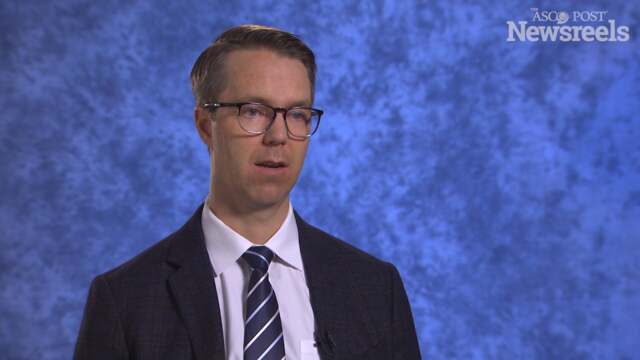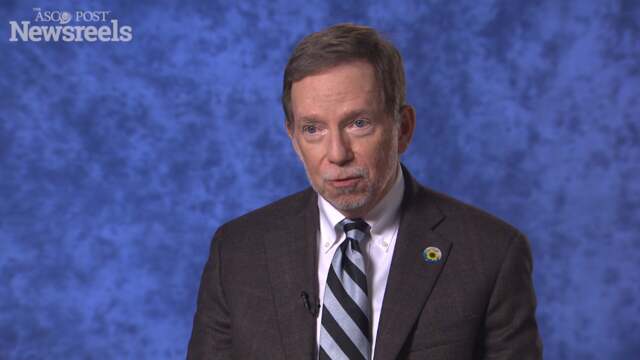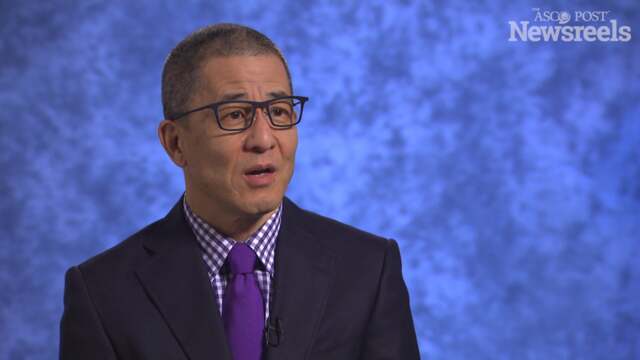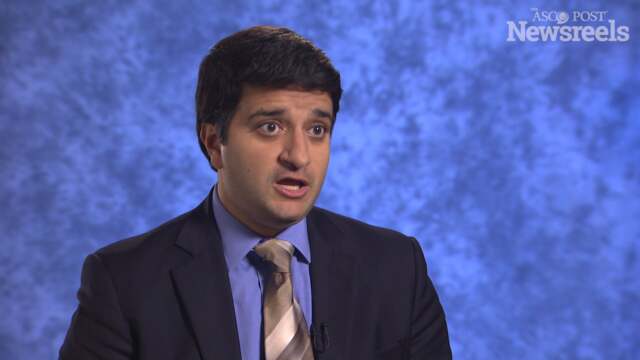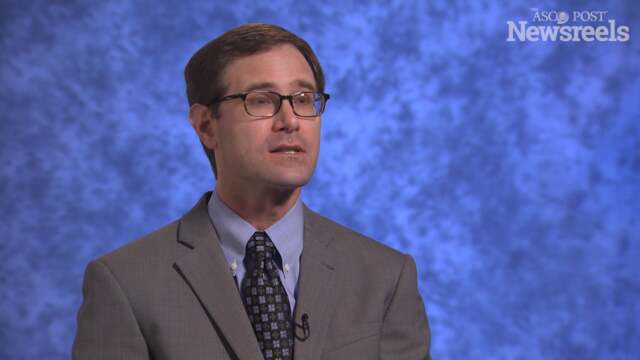Jamie Jacobs, PhD, on Early Integrated Palliative Care: The Positive Effects
2017 Palliative Care in Oncology Symposium
Jamie Jacobs, PhD, of Massachusetts General Hospital Cancer Center, discusses study results that showed integrating oncology and palliative care early in the course of treatment helps people with incurable lung and gastrointestinal cancers cope better and have an improved quality of life and less depression (Abstract 92).
Eric Roeland, MD, of the University of California, San Diego, summarizes key papers delivered at the Palliative Care Symposium on managing insomnia, fatigue, nausea, and the ways in which physical therapy and nausea can reduce the side effect burden.
Thomas J. Smith, MD, of Johns Hopkins University School of Medicine, discusses successful models of integrating palliative care into outpatient oncology.
Anthony L. Back, MD, of the University of Washington, talks about how clinicians can protect themselves from burnout and develop resilience. The default approach––“pretending we are not affected by stress”––often backfires, he says, and makes caregivers more susceptible to workplace pressures.
Sandip Patel, MD, of the University of California, San Diego, discusses diagnosing and managing immune-related adverse events from immune checkpoint blockade and the toxicities of these treatments.
Jeremy Hirst, MD, of the University of California, San Diego, offers concrete advice on assessing the need for these medications, using them safely, and knowing when to deprescribe them.
